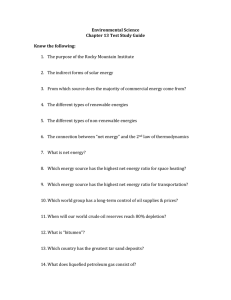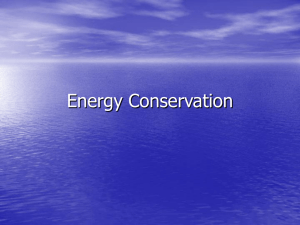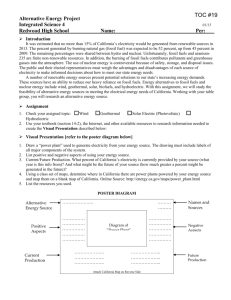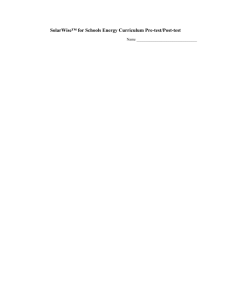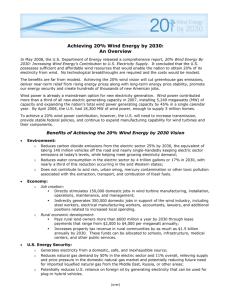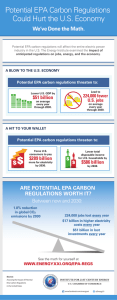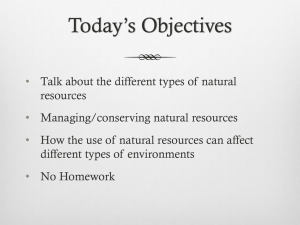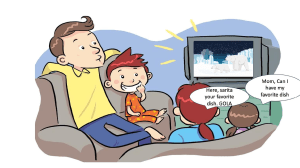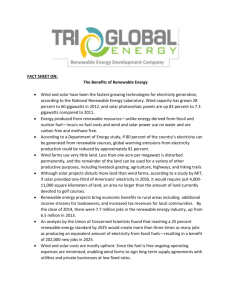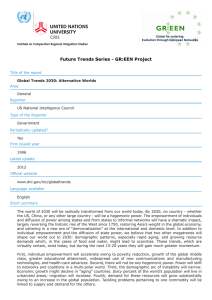Document 10588840
advertisement
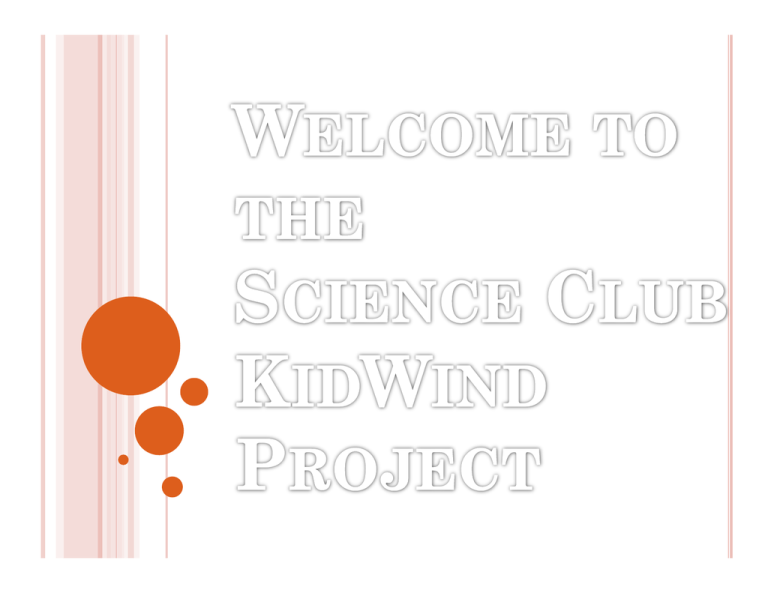
WHY WIND POWER? ¢ Gain energy independence ¢ Ease demand on the power grid ¢ Fossil fuels are running out! ¢ Reduce air pollution from fossil fuel electricity sources ¢ Supplement your photovoltaic solar power system (get power when the sun doesn’t shine!) WIND POTENTIAL ¢ The U.S. Department of Energy estimates that the world's winds could generate 15 times the amount of energy now used around the globe, if only we could tap into them. US DEPT OF ENERGY TECHNICAL REPORT – MAY 2008 ¢ Findings: Wind can provide 20% of US electricity needs by 2030 ¢ This could: ¢ •Reduce our CO2 emissions from electricity by 20% ¢ •Reduce natural gas use by 11% ¢ •Reduce water consumption by 4 trillion gallons by 2030 ¢ •Increase local revenues to more than $1.5 billion by 2030 ¢ •Support roughly 500,000 jobs in the US with 150,000 workers directly employed by the wind industry DOWNFALLS TO WIND POWER ¢ Wind farms take up a lot of space, and some people think they're just plain ugly. ¢ Effects on migratory bird populations and bat populations ¢ Wind is unreliable at times ¢ Noise ¢ High initial cost RENEWABLE WIND ENERGY FACTS: ¢ More than 20 million homes worldwide ¢ are powered by renewable ¢ energy sources. ¢ Wind and Solar are among the ¢ Wind Energy ¢ fastest growing industries. ¢ U.S. now has more than 10,000 MW ¢ of wind energy installed. HOW WIND POWER WORKS ¢ Wind is created by the unequal heating of the Earth’s surface by the sun. Wind turbines convert the kinetic energy in the wind into mechanical power that runs a generator to produce clean, nonpolluting electricity. HOW ARE WE DOING? ¢ According to the Department of Energy the US was using wind power for 1.9% of its electrical production in 2010. ¢ Its goal is for the US to be at 20% by the year 2030. We received a B/C on the most recent report card. WOLF ISLAND, ONTARIO, CANADA MAPLE RIDGE WIND FARM LOWVILLE, NY
